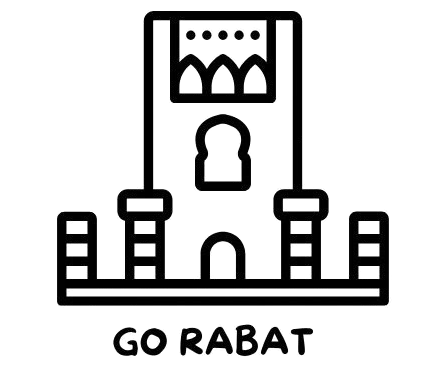Visit Rabat
There are cities that shout, and then there are cities that whisper softly, confidently, knowing that those who truly listen will hear everything they need. Rabat is one of those cities.
It doesn’t chase trends or try to prove itself. It simply is. Steady. Present. Rooted in layers of culture that stretch across empires, generations, and sea winds. The capital of Morocco isn’t just where politics live it’s where the soul of the country takes a deep breath and finds balance between past and future.
From the moment you arrive, Rabat welcomes you without demanding your attention. You won’t be pushed around by crowds or overwhelmed by sound. Instead, you’ll notice the calm. The wide boulevards lined with palm trees. The sound of tram bells in the distance. The ocean quietly breathing at the edge of the Kasbah.
Wander into the Oudayas and it feels like time slows down. There’s something magical about that space — not just the colors or the architecture, but the stillness. You sit for tea at Café Maure overlooking the sea, and suddenly you’re not thinking about Instagram or emails. You’re thinking about the way the sun hits the water. About how long it’s been since you truly sat still. Rabat gives you that — not entertainment, but presence.
Further inland, the medina unfolds without pressure. It doesn’t compete with the chaos of Fez or Marrakech. It gives you space to notice the people — the shopkeeper with weathered hands and kind eyes, the tailor mending a coat with soft music playing in the background, the smell of orange blossom floating from an open window. It’s not a show. It’s life, and you’ve been quietly invited in.
There’s a certain poetry to walking down Avenue Mohamed V in the early evening, when the sky turns gold and the city glows without needing neon. Students talk loudly over juice at sidewalk
cafés. Grandmothers in white djellabas carry fresh bread home. Lovers sit on benches without saying much, because some places make silence feel comfortable.
And then there’s the architecture a reflection of Rabat’s personality. Grand, but never imposing. The Hassan Tower, incomplete yet powerful. The Chellah, crumbling and overgrown, yet alive with birds and history. Even Rabat’s modern buildings feel respectful of what came before. The city isn’t in a rush to erase its past. It carries it with pride, not nostalgia.
In many ways, Rabat isn’t a destination. It’s a mood. A mindset. A place you begin to feel instead of “see.” You don’t conquer it. You let it unfold. And the more patient you are, the more it offers you.
So if you’re here for quick thrills, maybe Rabat isn’t your city. But if you’re here to reconnect with calm, with beauty, with something unspoken — then you’ve arrived exactly where you need to be.
Because Rabat doesn’t need to sell itself. It only needs to be experienced — slowly, and with an open heart.
